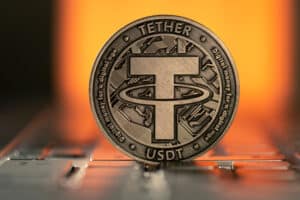
Hong Kong Regulators Continue to Crack Down Against Fake Crypto Exchanges
The Securities and Futures Commission of Hong Kong issued a warning against HKCEXP that claimed it lured investors by making false claims of being registered with SFC. On this account, the SFC issued an alert against HKCEXP informing the investors about suspicious activities and conduct of its contributors.
The SFC previously issued a deadline on 29th February for notified crypto exchanges to apply for a license.
Exchanges failing to submit registration applications would be asked to wind up business in Hong Kong before 31st May. The regulatory agency has thus far received 22 licensing requests from various crypto trading platforms including 4 exchanges that applied for a registration during the previous SFC supervisors. SFC authorities have posted the details of notified crypto exchanges on their official website.
The regulator has taken steps to inform the public about the unregistered trading platforms. However, Hong Kong administrators have continued to face challenges in dealing with fake firms that are portrayed as legitimate crypto exchanges.
In the latest notification, SFC regulators noted that HKCEXP attempted to offer services by falsely advertising itself as an SFC-registered business.
Regulators in Hong Kong to Take Legal Action Against HKCEXP
SFC authorities have noted that the HKCEXP provided a fake Hong Kong address for registration. One victim informed SFC that the platform deducted exorbitant fees for fund withdrawals. SFC maintained a list of crypto platforms that will receive operational licenses to raise awareness among investors for risk-free crypto trading.
The regulators have notified crypto exchanges that failure to apply for license can subject the platform to limited operational capabilities and banned from participating in marketing activities in Hong Kong. The SFC officials also identified and blocked several fake websites that attempted to impersonate major cryptocurrency exchanges.
On this account, the authorities seized various fake domains for impersonating two regulated exchanges in Hong Kong namely OSL Digital Securities and Hash Blockchain Limited. The SFC urged investors to verify a trading platform before utilizing the public ledger of certified individuals and registered institutions.
Using the same online sources, users can check the status of virtual asset trading platforms with a regulatory license with their official URLs.
Philippines Planning to Impose a Ban on Binance Exchange
Another Cointelegraph article reported that regulators in Philippines are working on imposing a ban on Binance exchange. The article noted that the ban is set to go into effect within 3 months that will enable investors to exit crypto positions via Binance exchange. The financial regulators in Philippines have noted that the local access to Binance is going to be revoked.
The Securities and Exchange Commission is working in tandem with the National Telecommunication Commission (NTC) to block access to the Binance website and online trading platforms.
The report suggested that the SEC identified the aforementioned platform and concluded that if the public access the website and app it can pose a threat to the security of Filipinos as per SEC chairperson Emilio B. Acquino.
Binance to Offer Various Trading Services in Philippines
The regulatory agency has noted that Binance was offering several investment products such as leveraged trading services and savings accounts without acquiring the registration. The 90-day grace period will grant the investors time to exit their positions on Binance. The agency has asked Google and Meta to block Binance-related advertisements to Filipino users.
BNB token investors have set their eyes on the $620 resistance. As per a Cointelegraph analysis, derivatives and on-chain metrics hint return positive results. On 29th March and after two-week high of $620 the surge narrowed valuation gap with their main competition Ethereum. For the same duration, Ethereum prices printed 5% gains.
However, metrics from Binance Chain data suggest that the rally stretched too far. The analysis also takes Bitcoin spot ETF inflows and DeFi momentum on BNB price movements. This uptrend is attributed to massive demand for Bitcoin stemming from Bitcoin spot ETFs. However, the demand cooled down on 23rd March with $890 million in net outflows.
On the other hand, recent figures indicate that outflows from Grayscales have started to decline with the latest outflows limited to $104 million as of 28th March. For the first half of March, BNB prices increased by 61.7% after the unit price reached $645.




